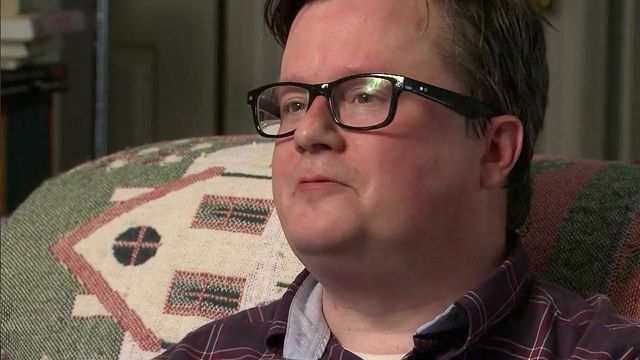NC alone in choice to end extended unemployment checks
North Carolina lawmakers had a tough choice this spring: Change how unemployment benefits are calculated, potentially cutting off benefits to tens of thousands of people, or allow the state's debt to the federal government to continue as a drag on the economy. The state was one of many in the same situation, but North Carolina lawmakers were the only ones who chose the quicker fix.
Posted — UpdatedThe Tar Heel state was one of many in the same situation, but North Carolina lawmakers were the only ones who chose the quicker fix. Effective July 1, 71,000 people will see their extended benefits end.
During the 1990s, states gradually cut back on the unemployment tax they charged to businesses, explained Duke University economist Aaron Chatterji. When recession hit in 2008, and unemployment claims began to climb, the states lacked the trust fund to pay those benefits. They borrowed from the federal government, and now that bill is coming due.
"Most states have these have this deficits with the federal government," Chatterji said. "They are all dealing with it in different ways. North Carolina is unique in terminating the program so abruptly."
In order to pay down that debt, lawmakers agreed to a plan that reduces state unemployment compensation, eliminates extended benefits and raises employer contributions into the system. Under the plan, the debt owed will be paid off in 2016, three years early. It takes effect June 30.
"We believe it's the right decision," said Sen. Bob Rucho, R-Mecklenburg. "Had we not made these changes to start putting some fiscal sanity back into the system, that fund would not exist for any future people."
In a statement issued Friday, Sen. Phil Berger, R-Rockingham pointed the finger of blame on Democratic administrations past.
"During good economic times, previous Democratic legislatures and administrations made irresponsible decisions that hurt the solvency of our state’s unemployment insurance system," a Berger spokeswoman wrote. "If the General Assembly had failed to act, the state’s debt would not be paid off until 2019."
Chatterji agrees with the long-term benefit – both to businesses and the state economy overall. But he questions the timing.
"Given that we're still in an economically uncertain time, many economists would argue that it would be better to let the unemployment benefits continue and pay back that money later on, but there's a debate about that," he said. "Given that we still have the fifth-highest unemployment rate in the country as a state, it's not clear whether this was the best time to make this kind of decision."
Those on both sides of the issue agree, there is no easy solution.
"When the bills come due, we have to pay the debts," said Rep. Edgar Starnes, R-Caldwell.
Cuts hurt local communities
Chatterji points out that the 71,000 people who will lose their federal extended unemployment benefits next month will no longer have that income to spend in their local economy. He estimates the cost at about $20 million per week in consumer spending that will stop.
Lee Creighton is dependent on his weekly unemployment check. He has degrees in math, statistics and French literature, but has been out of work or underemployed for the past four years.
"I applied to work for the lottery, GlaxoSmithKline, LexisNexis, Red Hat, The Pantry, Kangaroo Express," he said.
The high unemployment rate actually makes it harder for job seekers to find something, Chatterji said.
"These folks aren't just any unemployed individuals. They are people who have been unemployed for six months or more. They tend to be older workers, less educated workers. So the chance of them finding a job after the benefits are cut are quite lower than the typical unemployed individual," he said.
"Our focus and our intention is to get folks back to work," said Sharon Decker, state Secretary of Commerce. She is the state's top job recruiter.
She pointed to training programs and community colleges as a way for the unemployed to learn new skills.
Patricia White is taking courses at Wake Tech. A mother of two whose husband is also out of work, White said she is reliant on her federal extended unemployment benefits to get by.
"As of June 29, I have no income," she said. I still have all my bills, house note, car payment, insurance, utilities, to eat. I don't know how I'm going to make it."
Creighton's savings are depleted, and he is starting to worry.
"I've started looking at bridges. That one, I can get under there, and they won't see me. I've started thinking like a homeless person," Creighton said.
"It does not have to be this way. The safety net has suddenly been pulled from us."
The federal unemployment benefits are slated to expire across the country at the end of the year. In North Carolina, the new law means that change comes six months earlier.
Related Topics
• Credits
Copyright 2024 by Capitol Broadcasting Company. All rights reserved. This material may not be published, broadcast, rewritten or redistributed.






